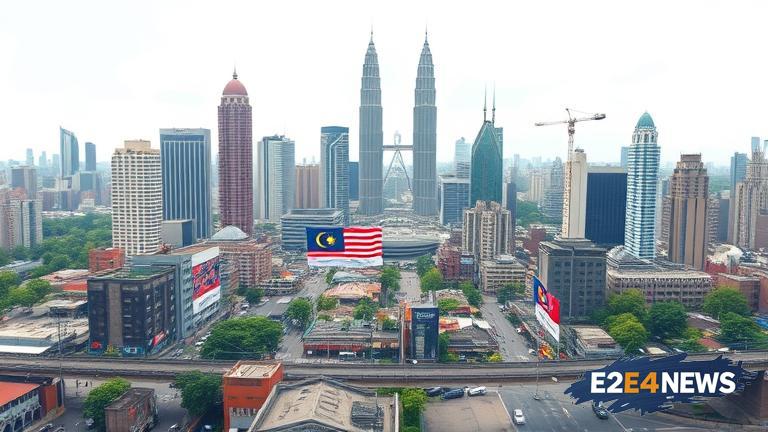In a significant show of unity, four Malaysian states have come together to reject the Urban Renewal Bill 2025. The bill, which aims to revitalize urban areas, has been met with widespread criticism from state governments and local communities. The states of Selangor, Penang, Kelantan, and Terengganu have all expressed their opposition to the bill, citing concerns over land rights and federal overreach. The bill proposes to give the federal government significant powers to acquire and develop land, which has raised concerns among state governments and local communities. The states are worried that the bill will erode their autonomy and undermine their ability to manage their own land and development. The opposition to the bill is not limited to state governments, as local communities and civil society groups have also expressed their concerns. Many have argued that the bill is overly broad and does not provide sufficient protections for the rights of landowners and local communities. The bill has also been criticized for its lack of transparency and public consultation. Despite the opposition, the federal government has pushed ahead with the bill, which has sparked a heated debate over the role of the federal government in urban development. The controversy surrounding the bill has highlighted the complex and often contentious relationship between the federal government and state governments in Malaysia. The rejection of the bill by the four states is a significant setback for the federal government, which had hoped to pass the bill with minimal opposition. The states have vowed to continue their opposition to the bill, and it remains to be seen how the federal government will respond. The controversy has also sparked a wider debate over the need for greater decentralization and autonomy for state governments in Malaysia. Many have argued that the federal government should give more powers to state governments to manage their own affairs, rather than trying to impose its will through legislation like the Urban Renewal Bill. The rejection of the bill is also seen as a victory for local communities and civil society groups, who have been advocating for greater transparency and public consultation in urban development. The controversy has highlighted the importance of public participation and consultation in urban development, and the need for the federal government to listen to the concerns of local communities. The Urban Renewal Bill 2025 is just one example of the many challenges facing urban development in Malaysia, where rapid urbanization and population growth are putting pressure on infrastructure and services. The federal government has pledged to address these challenges through a range of initiatives, including the Urban Renewal Bill, but the controversy surrounding the bill has raised questions about its ability to deliver. The rejection of the bill by the four states is a significant blow to the federal government’s plans, and it remains to be seen how it will respond. The controversy has also sparked a wider debate over the role of the federal government in urban development, and the need for greater decentralization and autonomy for state governments. The Urban Renewal Bill 2025 is a complex and contentious issue, and its fate remains uncertain. The federal government will need to navigate the complex web of interests and concerns surrounding the bill, and find a way to address the concerns of state governments and local communities. The rejection of the bill by the four states is a significant development, and it will be interesting to see how the controversy unfolds in the coming weeks and months.
